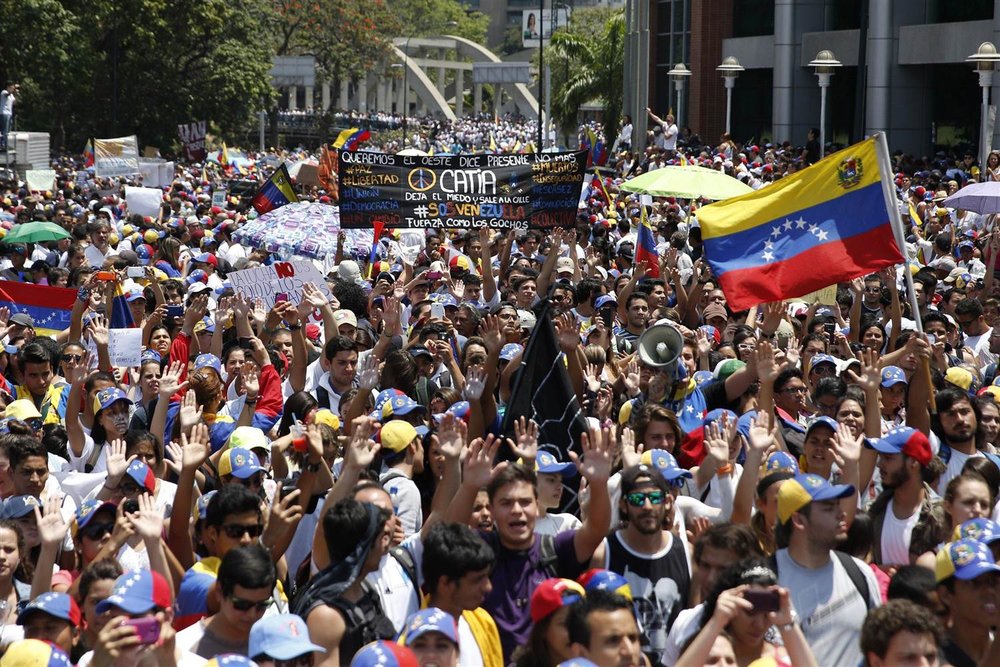Offer Maduro’s allies a safe exit from Venezuela

A bleak outlook with no change in government and no debt default
This year, desperate Venezuelans sold their hair to make ends meet. Oil output slumped and the economy, despite the world’s largest energy reserves, flirted with default. The opposition won control of parliament; once-friendly nations expelled Venezuela from regional trade group Mercosur; and a U.S. court convicted two nephews of President Nicolás Maduro of drug trafficking.
Yet Caracas’s unpopular socialist government endured. Sadly, 2017 is unlikely to be less bleak. Maduro will probably remain in power and Venezuela will continue to service its $125bn of international debt — although both will be close calls.
Take politics first. The opposition began 2016 united and hopeful that its parliamentary majority would allow it to hold the government to account. Instead, it ended the year fractured and with parliament neutered by the government-controlled Supreme Court. A major turning point came in September, when Maduro cancelled a constitutionally allowed referendum that sought to remove him from office.
Massive opposition street protests tried to reinstate the vote, but failed. Vatican-mediated talks then collapsed after Maduro reneged on early pledges. The government therefore starts 2017 in a stronger political position than it did in 2016. Increasingly, there is also a chance it will cancel presidential elections set for early 2018.
Gross economic mismanagement remains its weakest point. Imports have fallen by a horrifying 71 per cent since oil prices peaked in 2012. Triple-digit inflation and rampant corruption make matters worse. Every socialist revolution suffers shortages, black markets and inefficiency. In Venezuela, the difference is that much criminal activity is controlled by state-affiliated actors. That is especially true of officials who make fortunes arbitraging price controls and multiple exchange rates — which is largely why these policies remain in place.
It is also partly why Caracas continues to priorities debt payments over imports. Default would see creditors seize oil cargos, ending the inflow of petrodollars and thus the patronage that buys the government its support. Caracas’s willingness to pay its debts is never in doubt. The recent rise in oil prices means it is now more able to pay.
What might change these dynamics in 2017? The determining economic factor is the oil price — but this lies outside Venezuela’s control. The determining political factor is the relative strength of the government over the opposition. Although riven with internal division, the government has a unified command structure. It also controls all major institutions, including the army. The opposition has moral force, international goodwill and popular support. These are not enough to threaten the government, or even to sustain the constitutional order.
For that to change, the “cost of support” for Maduro’s allies, especially the army, must rise. That could happen if conditions worsen so much that Venezuelans from across the social spectrum, including the 20 per cent who still favour Maduro, begin sustained protests. The army might then switch sides. The “cost of exit” for compromised officials who cling to power for fear of jail must also fall. Otherwise, their incentive is to hang on at all costs.
But how to provide safe exit? This might be a chance for the U.S. president-elect to show his business prowess. Donald Trump, who has pledged to help “oppressed” Venezuelans, could cut a deal with senior officials arranging, say, exile to third countries. Such schemes are always controversial but here, if they abetted a transfer of power, might be welcomed.
(Source: FT)
Leave a Comment